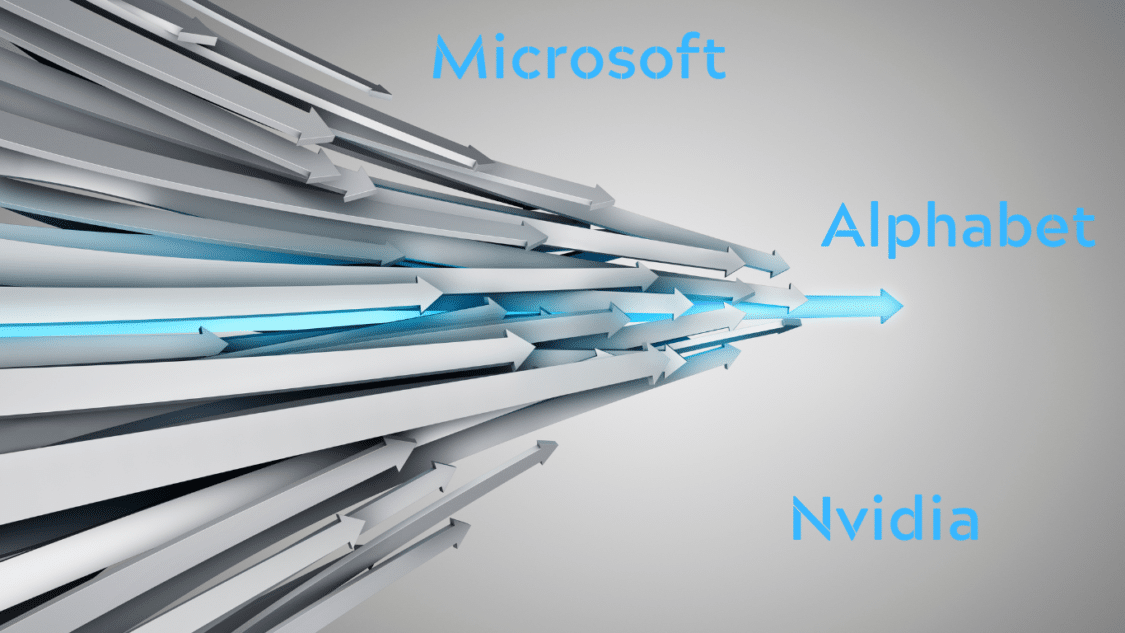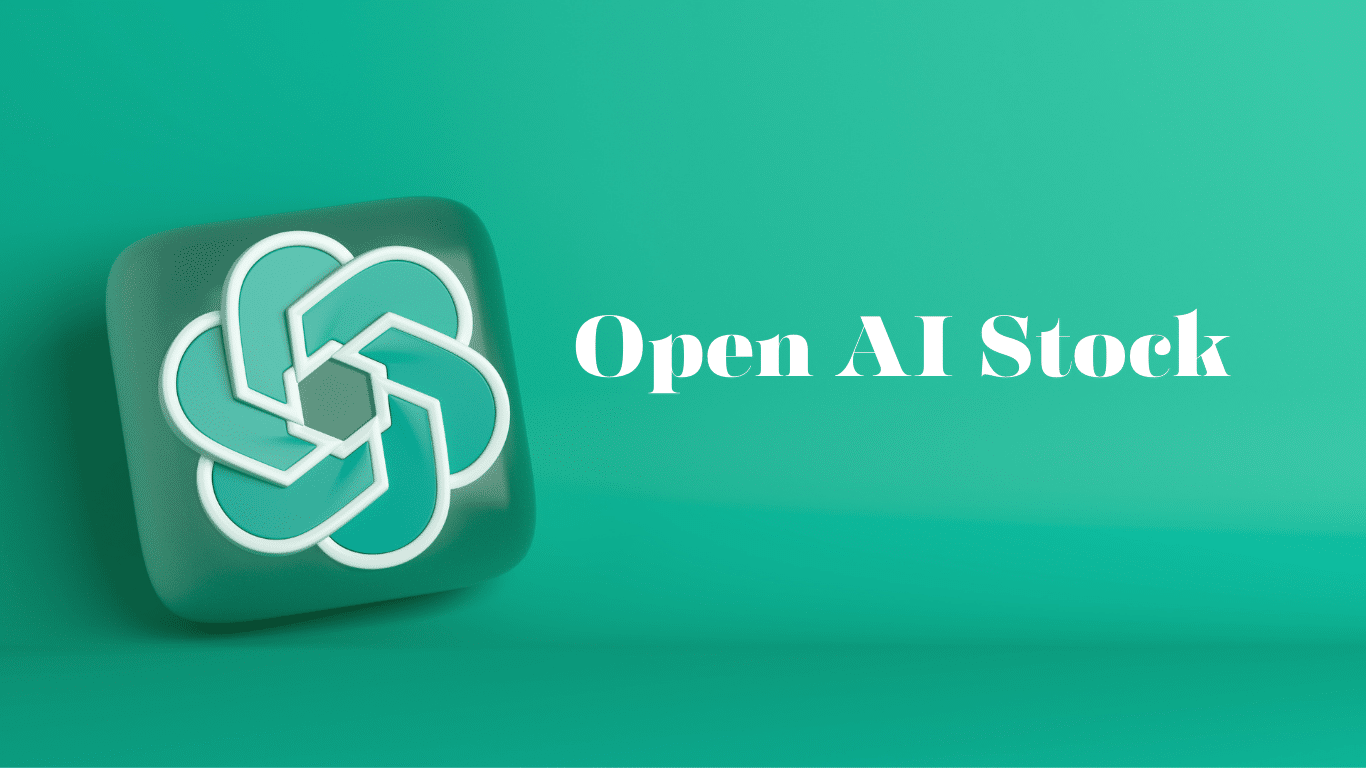Open AI has become the world’s most innovative and influential artificial intelligence company. Open Ai has developed leading-edge AI models to play video games, conduct text, form images, and code software better than the average human.
However, you will be disappointed if you are interested in investing in Open AI stock on the market. Open AI is a private startup that has not yet been rendered public. So, how is it possible to invest in Open AI stock and profit from its future growth? This article will explain what Open AI is, who owns it, how to acquire Open AI shares indirectly, and what to anticipate if it ever goes public.
What is Open AI?
Open AI was created as a non-profit organization in 2015 by a group of IT entrepreneurs and visionaries, one of them being Elon Musk. The purpose of AI is to guarantee that artificial intelligence is compatible with human values and may be utilized to benefit society.
Under its non-profit parent business, Open AI Inc., Open AI LP was formed in 2019. The for-profit part helps Open AI generate more cash and recruit top participants, while the non-profit arm assures its research and technologies are available to the public.
Open AI is well known by society for its GPT-3 model, which is the world’s most powerful text generator. Based on a few words or lines inserted by the user, GPT-3 can generate everything from essays to emails to tweets. It can also provide answers to inquiries, summarize and rephrase articles, and translate across languages.
The next version of the ground-breaking language model can produce coherent and varied documents on any topic, from fiction to code. GPT-4 is projected to be much more powerful, scalable, and adaptable than GPT-3, allowing for new applications and language processing and creation advancements.
Jukebox is a neural network that can create music in any style, genre, or mood from scratch or inputted tunes. Jukebox can create unique compositions or remixes by synthesizing realistic singing voices, lyrics, and instrumentation. Jukebox exemplifies how artificial intelligence could improve and expand the musical world.
CLIP is a vision system that can acquire knowledge from any picture or text input without needing labels or annotations. CLIP can detect and categorize objects, situations, activities, emotions, and other things using natural language queries like “a photo of a dog” or “a drawing of a happy face.” CLIP may also produce picture captions and descriptions and vice versa.
Other noteworthy AI models in Open AI include Dall-E, which can produce realistic pictures from text descriptions, and Codex, which can construct computer programs from natural language instructions. Along with Google’s DeepMind and Facebook’s FAIR, Open AI is commonly considered one of the top three AI laboratories in the world.
Who Owns Open AI?

Open AI is in the hands of several investors and partners who share its vision and values. The prominent investor is Microsoft, which invested $1 billion in 2019 and secured an exclusive license to use GPT-3 on its Azure cloud platform. Microsoft also announced a new multiyear, multibillion-dollar involvement in Open AI beginning in 2024, though the number was not specified precisely.
Does Elon Musk own OpenAI?
Additional investors include Amazon Web Services, Reid Hoffman, Infosys, Peter Thiel, Khosla Ventures, Altman Brothers, Marc Benioff, and Jack Dorsey. Elon Musk is still a co-founder of Open AI. However, he stepped off the board in 2018 owing to potential conflicts of interest with his other business organizations.
How to Buy Open AI Stock Indirectly?
Open AI has not publicly traded, so its stock cannot be bought directly. However, shares that can be purchased are the other companies that have had exposure to Open AI’s success. Some of those companies include:

Microsoft (NASDAQ: MSFT): The closest thing to investing in Open AI shares is Microsoft. It has formed a strategic alliance with Open AI and has access to its cutting-edge technologies. Microsoft also has a large AI business, with products including Cortana, Bing, Azure Cognitive Services, and LinkedIn.
Nvidia (NASDAQ: NVDA): Nvidia is the world’s largest supplier of graphics processing units (GPUs) required for training and executing AI models. Most of Open AI’s models and those of other prominent AI businesses are powered by Nvidia GPUs. Nvidia has its own AI platform, referred to as Nvidia DGX.
Alphabet (NASDAQ: GOOGL): Alphabet is Google’s parent firm and owns DeepMind, one of Open AI’s primary rivals. DeepMind has created several outstanding AI models, including AlphaGo, AlphaFold, and MuZero. Other AI products and services Alphabet offers include Google Assistant, Google Cloud, YouTube, and Waymo.
To invest in shares of the companies mentioned above, you need to open a brokerage account. We recommend _____. Fill out your information below to take part in this investing journey.
How to Invest in Open AI Stock Directly?
If you’re interested in investing in Open AI stock directly, you must wait until it goes public. Although there has been no formal announcement or schedule for an Open AI IPO, CEO Sam Altman warned in 2019 that they may require more funding than any non-profit has ever raised.
If Open AI goes public, it will be one of history’s most anticipated and publicized IPOs. The company’s worth is projected to be approximately $20 billion. However, this figure might rise significantly depending on market demand.

Is OpenAI publicly traded?
Not just yet. To be ready to buy Open AI stock when it goes public, follow these steps.
- Create or log in to your brokerage account.
- Be on the lookout for the Open AI stock symbol, which will only be released when they file for an IPO.
- Place a buy order for the number of shares you want to buy.
- Wait for your order to be processed at the best price.
You can also sign up with Equitybee to be alerted when Open AI stock options become available. Equitybee is a website linking authorized investors with private company workers seeking to exercise their stock options.
By sponsoring employee stock options, you may have access to hundreds of high-growth, VC-backed firms before they go public. In exchange, you will get a portion of future revenues from successful liquidity events such as IPOs or acquisitions. Register here for unique access to Open AI and other private firms.
What are some risks associated with investing in OpenAI?
Any form of investment in a company involves risk, especially in a private company like OpenAI. Some of the dangers included are the following:
Liquidity: Due to OpenAI’s status as a privately held company, its shares are not publicly listed on any stock exchange. This implies that if you need to liquidate your investment, it may be challenging to sell your shares.
Transparency: Private firms like OpenAI cannot provide as much information as public ones. This implies you might not have all the information required to make an informed investing decision.
Uncertainty: Because OpenAI is still a new firm with an unproven business strategy, its prospects and profitability still need to be discovered.
What are the biggest challenges facing OpenAI in the coming years?
OpenAI comes with several challenges, including:
Scaling up the capabilities and generality of its AI systems while ensuring they stay aligned with human preferences and values. This solves technical challenges in AI safety, such as avoiding reward hacking, specification gaming, and resilience to distributional shifts.
By sharing its knowledge and technologies, it must balance openness and accountability. OpenAI intends to democratize access to strong AI while encouraging cooperation and creativity. Still, it must also examine the possible dangers and costs resulting from malevolent or irresponsible usage of its AI systems.
Creating a governance structure and culture supporting the organization’s long-term goals and values. OpenAI must manage the complicated and ever-changing world of AI ethics, regulation, and policy and its stakeholders’ numerous and frequently competing interests and expectations, including workers, donors, partners, and users.
Effectively communicating its efforts and influence to the public and the media. OpenAI must contend with the hype and misconceptions that often follow AI and the difficulties of presenting complicated and technical topics to a broad audience. OpenAI must also maintain its reputation and credibility as a reliable organization for the public.
Conclusion
Open AI is a privately held firm not yet traded on exchanges. However, you may indirectly invest in Open AI stock by purchasing shares of other firms with a stake in its success, such as Microsoft, Nvidia, and Alphabet. Other options include signing up with Equitybee to be notified if Open AI options are available in the future. Equitybee allows you to invest in private firms before they go public.
If Open AI eventually goes public, it will undoubtedly be one of the most intriguing and valuable initial public offerings (IPOs) ever. When it goes public, you will need a brokerage account and a buy order to invest in the stock.
Open AI is one of the world’s most inventive and important artificial intelligence startups. It has created ground-breaking AI models that can outperform most people at video games, text generation, picture creation, and software coding. Purchasing Open AI stock may be an excellent method to take part in the future of artificial intelligence. However, investing is risky, so research and due diligence before deciding.




